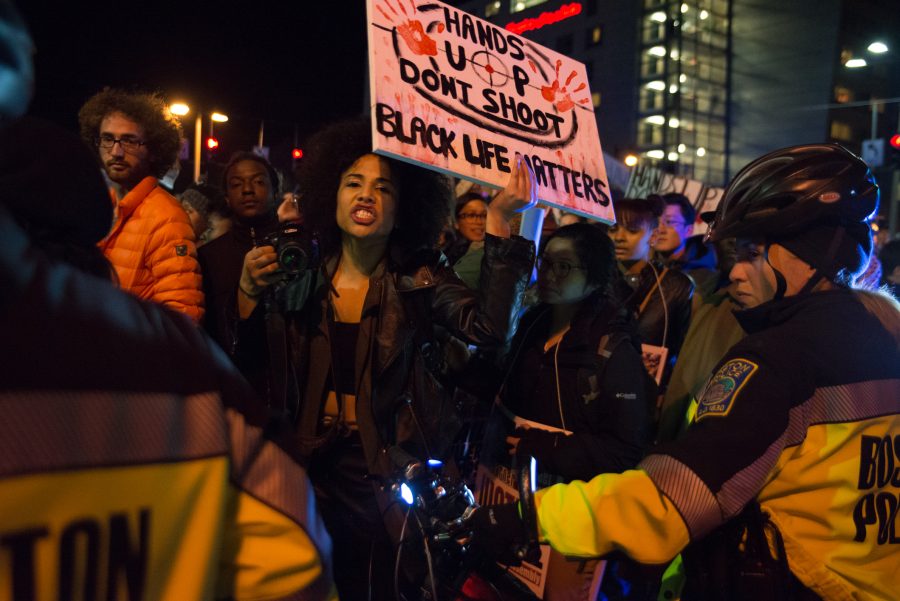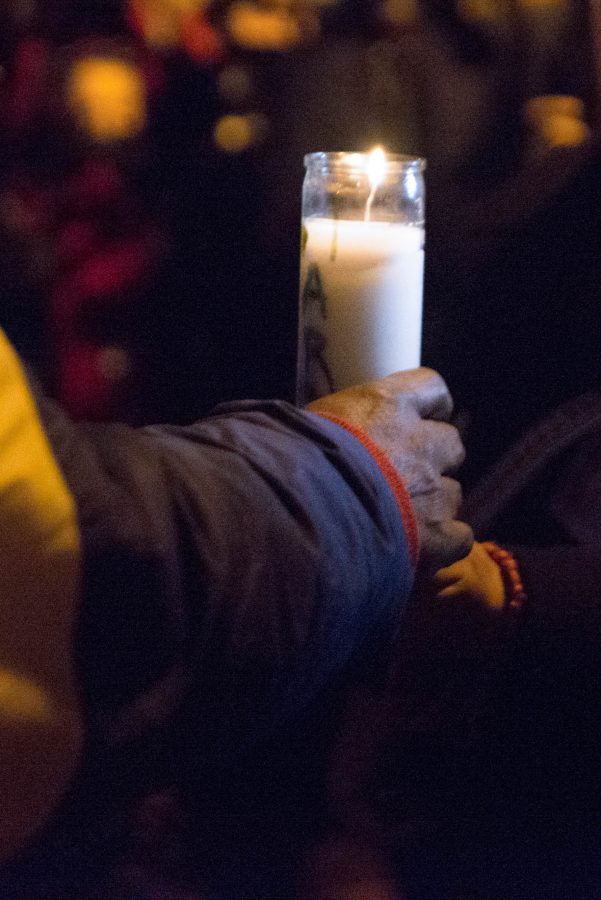On February 16, a coalition of organizations titled the Black Lives Matter Production Board hosted a Black Lives Matter concert at Berklee College of Music.
The coalition was made up of Black Lives Matter Berklee, Berklee’s Black Student Union, and the inter-campus initiative called the Glory Project.
Senior SaTa’Ra Moore-Troutman, a board member of BLM Berklee, said that the concert was part of a six-demand list given to BCOM’s president, Roger H. Brown.
According to Moore-Troutman, the concert was important due to the role music plays in celebrating, influencing, and telling the stories of social-justice efforts, in this case, the Black Lives Matter movement.
The BLM Production Board, a nine-person group including Moore-Troutman, Miriam ElHaji, Robert Gould, Tickwanya Jones, Tabari Lake, John Liner, Ryan Linvill, Ricky McKinney, and Desmond Scaife, organized the Black Lives Matter Concert.
The structure of the concert was broken up into historical timeframes: The Middle Passage, The Harlem Renaissance, The Civil Rights Era, The Black Power Movement, Pan-Africanism, and The Rodney King (Modern) Era.
“We picked everything specifically to be organized by the movements and music that underscored these movements,” said Moore-Troutman when asked as to why the concert was planned chronologically.
This organizing was seen in the performances where each era was introduced by a brief narration of their importance. All of this started after the welcome, where the show began with what was titled The Middle Passage, but to Ms. Moore-Troutman, this section was there “to stress that we came from a people enslaved, not slaves.”
Moving along in the show, the audience saw an array of era-specific fashion and trends, like swing dancing to a cover of Duke Ellington’s “It Don’t Mean a Thing,” a powerful performance of “Ain’t Gonna Let Nobody Turn Me Around,” and a crowd-pleasing presentation of Public Enemy’s “Fight the Power.”
During one section of the show, Pan Africanism, performers covered songs like “La Negra Tiene Tumbao” by Cuban artist (and Afro-Latina) Celia Cruz, along with a mashup of Bob Marley’s greatest hits. This section celebrated the global experience of people with African descent.
On the stage behind the performers were projections of era-appropriate photos and videos, including a sound bite of the late Nina Simone. At the end of the event, several of the performers held placards with faces of victims of police brutality and interracial violence.
These faces included Michael Brown of Ferguson, MO; Sandra Bland of IL, and Eric Garner of NYC. The names of the victims were said out loud with each placard holder making a statement of solidarity with the victim.
When asked about the response of the concert, Moore-Troutman described the outpouring of support, thanks, and criticism. “There’s so much more to come,” said Moore-Troutman, smiling.
Taken during a Black Lives Matter protest through the Boston streets on November 16, 2014 in response to a series of instances where law enforcement killed an African-American man.


